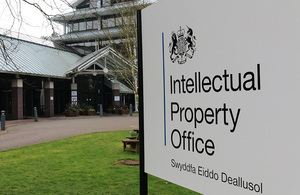An official inquiry has lifted the lid on comprehensive failings of governance and oversight at RNIB, which placed some of its beneficiaries at undue risk of harm and allowed harm or distress to come to some children with complex needs.
In a report, published today, the Charity Commission sets out systemic weaknesses at RNIB that allowed serious safeguarding breaches to take place, and which meant these were not picked up or addressed by senior levels of the charity at an early enough stage. It is highly critical of the charity’s leadership at the time for allowing these and other failures to take root, and considers there was a breach in RNIB’s duty to take all reasonable steps to protect the charity’s beneficiaries from coming to harm.
Concerns resulted in the regulator sanctioning RNIB with an Official Warning and issuing it with a legal Order that holds the trustees to account against an Action Plan requiring wholesale change to its governance, management, culture and processes. The charity remains under ongoing statutory supervision until it has implemented all of the required reforms.
Serious safeguarding weaknesses put children at undue risk
The regulator launched its investigation in March 2018, prompted by serious concerns about the services provided at the RNIB’s Pears Centre children’s home in Coventry and Ofsted’s notice of intention to cancel the registration of the facility.
The inquiry and independent reviews which supported the inquiry, corroborated these concerns. The reviews found a catalogue of failings at the charity including:
- a culture that was too insular and dismissive of external criticism from Ofsted, CQC and parents
- a disproportionately high number of basic medication errors at RNIB Pears Centre
- inadequate staff training, an issue compounded by an over reliance on agency staff
- poor recruitment practices which did not adequately protect beneficiaries
- inadequate oversight and interim management arrangements of staff and services allowed a working practice to develop that was not child centred
Today’s report also details several incidents where harm or distress occurred to some children at the RNIB Pears Centre.
The inquiry considered that the seriousness of these shortcomings, particularly at RNIB Pears Centre, was exacerbated by many of the beneficiaries having learning and communication difficulties, and therefore they and their families being heavily reliant on RNIB. Children at the RNIB Pears Centre had needs and disabilities so complex that in some cases, a placement at the centre was an alternative to a hospital stay. However, the charity’s safeguarding processes and oversight did not reflect the high level of care and attention that was required.
The inquiry concluded that families affected by these failings were badly let down by RNIB.
Ineffective and dysfunctional governance
The inquiry found evidence of ineffective and dysfunctional governance at the charity. At one stage trustee committees that were meant to oversee the regulated establishments did not meet for a period of 10 months, something the inquiry finds to have been “wholly inadequate”, and an independent review criticised a committee for providing “superficial scrutiny”.
The same independent review found that “no single person had direct qualifying experience” in the chain of senior managers, various committees, senior executives and the trustee board which oversaw the regulated establishments catering for children and/or adults with complex needs.
The inquiry was told that between 2016 and 2017 trust had broken down between some of the trustees and executives. It also heard that there was “a dysfunction in leadership and governance over many years”. The inquiry is critical of the charity’s board for failing to ensure its governance arrangements appropriately matched the complexity and scale, and associated risks, of its activities and structure.
The inquiry concludes that these failings contributed to beneficiaries across RNIB’s specialist care and educational centres being placed at undue risk of harm – and some suffering actual harm or distress. It considered that some of the failings identified by the inquiry and the associated reviews amount to misconduct and that collectively, they amount to serious mismanagement in the administration of the charity.
Helen Stephenson CBE, Chief Executive of the Charity Commission, said:
This is one of the worst examples we have uncovered of poor governance and oversight having a direct impact on vulnerable people. A catalogue of serious failings were allowed to occur, because the charity’s governance was simply too weak for the trustees in charge of the charity to do the job that beneficiaries needed them to do.
No child should ever be put at risk of harm, and this case is all the more troubling because it happened in the care of a charity.
Providing services to children with complex needs is a significant responsibility, and when charities provide such services, the public expect rightly these to be delivered with compassion, selflessness and empathy, as well as competence.
Charity trustees should therefore ensure that systems of governance and management help, rather than hinder their charity from delivering on its purpose and meeting the needs of those it is set up to help.
I am concerned that what happened here lets down all those doing good work in so many charities to care for people to high standards.
After issuing its Official Warning and Order, the Commission approved an Action Plan submitted by RNIB involving a 2-year reconstruction programme. The regulator also exercised other powers to support refinancing of debt the charity had incurred and the appointment of new trustees.
During the inquiry RNIB reassessed its provision of regulated services. It is now part-way through the transfer of all its regulated older people’s care homes, and its schools and colleges, to new specialist providers.
The charity is also making good progress against the Action Plan. The charity remains under the Commission’s statutory supervision. The regulator will closely monitor its progress to ensure the required changes are made.
Helen Stephenson added:
RNIB has long been an important national institution, and, for many people with sight loss, it provides a lifeline that they should be able to trust. I am encouraged by the charity’s commitment to address its shortcomings and hope that it will get back to that position of trust. We are determined to ensure that it does.
Alert to large service delivery charities
The failings at RNIB had a significant impact on the charity, including financially, and the regulator is clear that the mistakes made at this charity must never be repeated. It is the third in a series of recent high-profile failures by household name charities; the Commission is concerned about damage to the public’s trust in the charity sector should another large charity fail in its key responsibilities in running a charity.
As a result, the regulator is today issuing a regulatory alert to leaders of large, complex charities that directly support beneficiaries or provide amenities or facilities to the public. The alert will remind charities of the importance of suitable oversight that takes into account the complexity, scale and nature of their activities, in order to help avoid potential harm to their beneficiaries, finances or reputation. This matters all the more in a period when charities are playing a crucial role in the Coronavirus response, and with many charities under severe financial strain.
The full inquiry report is available on GOV.UK.
Ends.
Notes to editors
- The Charity Commission’s full report is available on GOV.UK and includes a foreword from the Commission’s Chair, Baroness Tina Stowell.
- If service users, and their families, of RNIB have any concerns they should contact the RNIB Helpline on 0303 123 9999.
- In March 2018 RNIB, through its group structure and the subsidiary charity, operated a total of 18 regulated services in England and Scotland. These services included 2 schools, 1 sponsored academy, 1 college, 1 children’s home, 5 care homes, 2 supported housing services, 3 supported living services, 2 day support and assessment centres, and 1 holiday scheme. These services were collectively regulated by the Care Quality Commission (CQC), the Office for Standards in Education, Children’s Services and Skills (Ofsted) and the Care Inspectorate.
- The RNIB Pears Centre site was transferred to Warwickshire County Council in December 2019.
- RNIB is one of the UK’s leading sight loss charities. Its charitable objects, as set out in its Royal Charter, are “to promote the better education, training, employment and welfare of blind and partially sighted people and generally to watch over and protect the interests of blind and partially sighted people and to prevent blindness.”
- The regulation of activities relating to the provision of education and care standards in the school and children’s home is undertaken by Ofsted and the Care Quality Commission in this particular case. The Commission, as charity regulator, has an important regulatory role in ensuring that trustees comply with their legal duties and responsibilities in managing their charity. In the context of safeguarding issues, it has a specific regulatory role which is focused on the conduct of trustees and the steps they take to protect beneficiaries and other persons who come into contact with the charity.
- The Charity Commission is the independent, non-ministerial government department that registers and regulates charities in England and Wales. Its purpose is to ensure charity can thrive and inspire trust so that people can improve lives and strengthen society.


